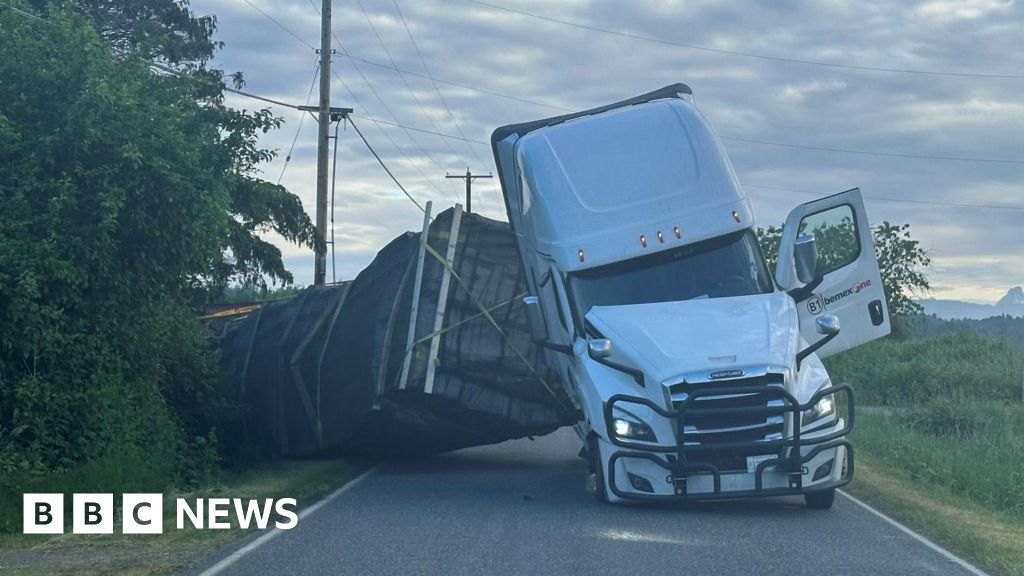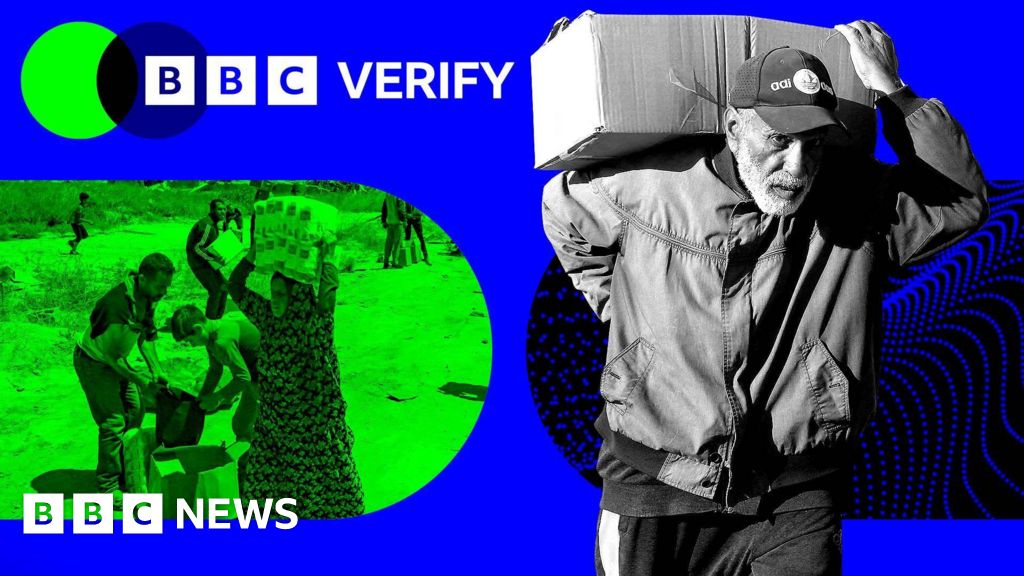ARTICLE AD BOX
Whatever else Russia's Victory Day parade is supposed to represent, it won't be any sort of victory over Ukraine, regardless of the spin President Vladimir Putin and the Kremlin will try to put on it, writes defence analyst Michael Clarke.
This war is one that Russia cannot win in any meaningful sense.
Putin's foreign military successes around the world after 2008 were all achieved by using small units of elite forces, mercenaries and local militia groups alongside Russian air power.
This gave Moscow considerable leverage at low cost during interventions in Georgia, Nagorno-Karabakh, Syria, Libya, Mali and twice in Ukraine during 2014, first in illegally annexing Crimea and then in creating self-declared Russian statelets in Luhansk and Donetsk.
In every case, Russia moved swiftly and ruthlessly in ways the western world was unable to counter except through graduated sanctions regimes - nothing that could reverse the reality. Putin was adept at creating "new facts on the ground".
In February he tried the same again on the grandest possible scale in Ukraine - to grab governmental power within about 72 hours in a country of 45 million people occupying the second biggest land area in Europe. It was an astonishing and reckless gamble and it failed completely in the first crucial week.
Putin now has few options but to keep going forward to make this war bigger - either bigger in Ukraine or bigger by advancing beyond its borders. Escalation is built into the current situation and Europe has reached a very dangerous moment in its recent history.
Having failed with Plan A to seize the government in Kyiv before President Zelensky's forces, or the outside world, could react, Moscow then switched to a Plan B. This was a more "manoeuvrist" military approach to surround Kyiv and move in on other Ukrainian cities - Chernihiv, Sumy, Kharkiv, Donetsk, Mariupol and Mykolaiv and simply snuff out Ukrainian armed resistance while Kyiv itself would be threatened with capitulation or destruction.
This, too, failed. Kherson was the only major city that fell under Russian control and has since continued to resist Russian administration. The fact is that Russian forces were too small to dominate such a big country; they performed very poorly for a mixture of reasons; they were badly led and dispersed around four separate fronts, from Kyiv to Mykolaiv, with no overall commander.
Image source, Getty Images
And they turned out to be up against a determined and well-trained Ukrainian army who fought them to a standstill in a classic demonstration of "dynamic defence" - not holding a line but rather hitting the attackers at points of maximum vulnerability.
In frustration, Russia has now moved to "plan C", which is to give up on Kyiv and the north, instead concentrating all its forces for a major offensive in the Donbas region and across the south of Ukraine, probably as far as the port of Odessa in the south-west - effectively to landlock the country.
This is the campaign we now see being played out in the south east around Iziyum and Popasne, Kurulka and Brazhkivka.
Russian forces are trying to surround Ukraine's Joint Forces Operation, (JFO) - about 40% of its army that has been dug in opposite the breakaway Luhansk and Donetsk "republics" since 2014. Key Russian objectives are to take Slovyansk and, a little further south, Kramatorsk. They are both crucial strategic points for control of the whole Donbas region.
And the war has moved into a different military phase - a struggle in more open country, during better weather, with tanks, mechanised infantry and, above all, artillery - designed to devastate an opponent's defence lines before armoured forces sweep in.
But the process is not so simple.
Russia's offensive got off to a staggered start and Ukraine's JFO has held the Russian offensive well short of the lines Russian commanders would have expected to reach by now. The Ukrainians have bought themselves some valuable time. A "race of the heavy metal" is under way as each side tries to bring in its heavy fighting equipment before the battle is fully joined. We can expect to see this develop over the next couple of weeks.
What happens in the Donbas, however, offers Putin only a choice between different types of defeat.
If the battle reaches an autumn stalemate, he will have precious little to show for so much loss and pain. If the military momentum shifts and his forces get pushed back, even more so. And even if the Russians succeed in overrunning the whole of the Donbas and all across the south, they still have to hold those territories for the indefinite future in the face of several million Ukrainians who don't want them there.
War in Ukraine: More coverage
Any significant Russian military success will likely create a major, open-ended insurgency that will get bigger for every district Russian forces may overrun. Putin went for broke in February with Plan A. The failure of that scheme means that plans B, C or any subsequent plans still leaves Russia going for broke - needing to suppress some or all of a very big country.
One way or another, Russia will have to keep fighting in Ukraine, either against the population, or against the Ukrainian army, and quite possibly both simultaneously. And as long as Kyiv sticks to its current line that demands Russian withdrawal before any concessions can be contemplated, there is not much Putin can do but carry grimly on.
The western powers will keep supplying weapons and money to Kyiv, and will not be lifting powerful sanctions on Russia any time soon. Once Europe's energy dependency on it is greatly lessened, Russia has so little that Europe really needs, the US and Europe will be able to leave crippling sanctions in place with small cost to their own economies.
Image source, Getty Images
Image caption,Unexploded Russian shells near Kyiv
There is no way back for Vladimir Putin personally and may even be indicted as a war criminal. His only political strategy is to make the war in Ukraine into something else - part of a struggle for Russia's very survival against the "Nazis" and "imperialists" of the West who relish the chance to take Russia down.
That's why it suits him to toy with the dangerous idea that Russia is facing a "Great Patriotic War 2.0" with the rest of Europe. We will probably hear a lot more about this on Victory Day. President Putin will claim to see light at the end of a very dark and long tunnel into which he has steered his own country.
Michael Clarke is visiting professor of defence studies, King's College London

 3 years ago
75
3 years ago
75








 English (US) ·
English (US) ·